Artist Frieda Toranzo Jaeger’s work Rage is a Machine in Times of Senselessness, which appeared on this year’s Venice Biennale
The artist Frieda Toranzo Jaeger’s Jewish grandfather fled Nazi Germany to escape the Holocaust and settled in Mexico. That is where she was born in 1988 and grew up.
Toranzo Jaeger went to the German School in Mexico City, and studied art in Germany, where she was based in Berlin for almost nine years. She returned to Mexico during Covid and since then has divided her time between the two countries.
Last month, Toranzo Jaeger, whose Palestine-related work featured prominently at the Venice Biennale this year, was approached to do an exhibition at the Leopold-Hoesch-Museum in the German city of Düren.
In addition, she was awarded a $19 000 (R350 00) stipend by the private Günther Peill Foundation —enough to take care of the following two years. Toranzo Jaeger was also bestowed $10 500 to produce a catalogue for the exhibition, which was scheduled for 2026.
But things soon started to unravel.
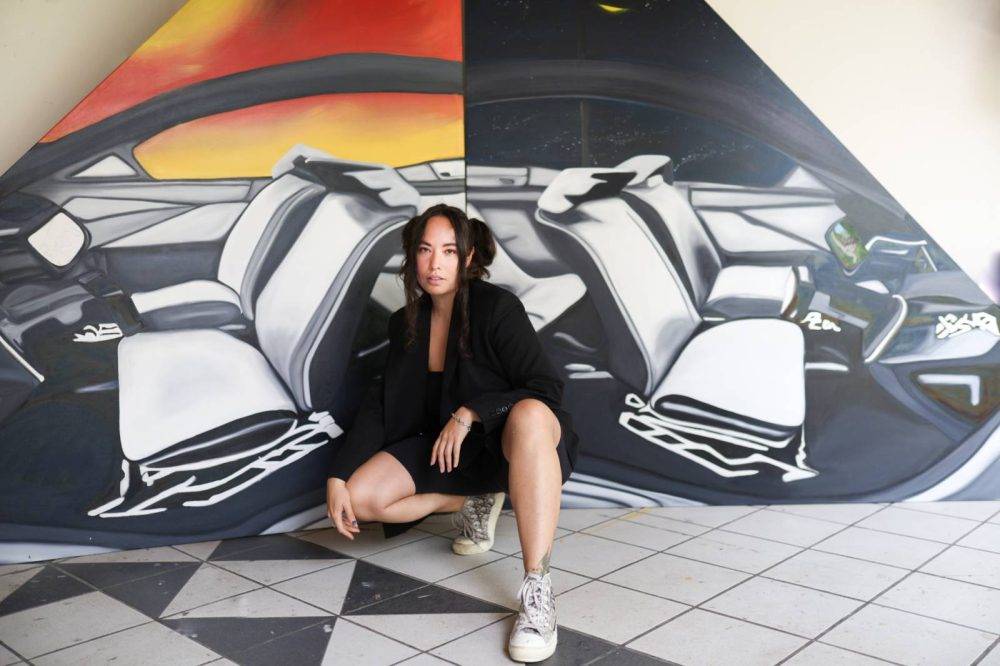
Two weeks ago, the foundation and the museum pulled the plug on the funding and the show.
Toranzo Jaeger says it was because of her “like” of a fellow Venice Biennale artist’s pro-Palestine Instagram post in July. There was also her signing a petition of the Strike Germany movement which urged artists not to associate with institutions that “police the politics of their artists”.
A statement, quoted by ARTNews, said: “Since cooperation would imply that the museum and the foundation meet the conditions set out in Strike Germany and support the demands, they will not enter into this,” and therefore the three parties “mutually decided to refrain from the intended cooperation on the scholarship and exhibition”.
But, in fact, it was an email to the foundation and museum from freelance journalist Kito Nedo that caused the wheels to come off.
He pointed out that Toranzo Jaeger had signed the petition and asked, “What character will this exhibition have?” — an exhibition two years down the line.
In further emails — which by now involved the local ministry of culture — he provided screenshots of pro-Palestine posts that she had liked.
“So, the foundation and the museum arranged a call with me,” Toranzo Jaeger tells me in an interview. “I didn’t really know what the call was about.
“And first what they did is they tried to bully me … so that I cancel myself. Which is just insane, right?”
Nedo’s persistent emails, which were shared with me, clearly worked.
“So, they literally bullied me into signing this statement,” says Toranzo Jaeger. “And I told them, ‘Okay, I’m going to agree now to do the statement. But after that I’m going to speak my truth because I don’t care.’”
The journalist never contacted the artist. I approached him for comment via email but he had not responded by the time of publication.
ARTNews managed to get hold of Nedo, who said that the emails were not for publication and declined to comment further.
The Düren spokesperson confirmed to the publication that “an unnamed journalist” had alerted them to Toranzo Jaeger’s support of Strike Germany.
Toranzo Jaeger tells me she declined another project because of the promised assignment. Fortunately, she is “good for next year … then you have to figure something out”.
About the principle of losing the work she says: “Now I get why Nazi Germany happened — because everybody’s so complacent and silent … and everybody’s afraid to lose their job and to lose funding.”
But what happened to Toranzo Jaeger is far from an isolated incident. In fact, this has become a disturbing trend in Germany.
Right-wing journalists are serving as snitches, police and arbiters of “Staatsräson” — the authoritarian turn in German memory culture that has accompanied debates about the Holocaust, anti-Semitism and Israel-Palestine.
Staatsräson, according to the online journal Sada, is “a cornerstone of German foreign policy, which sees Israel’s security as intrinsically linked to Germany’s national interest — and which many German decision-makers see as a logical consequence of Germany’s responsibility for the Holocaust”.
It also has led to Germany unconditionally supporting Israel’s genocide in Gaza.
Scouring mostly the social media activity of artists, curators, academics and film directors, these journalists download posts and make screen grabs of what someone “likes”.
They send this “evidence” of their “anti-Semitism” to the cultural institution, university or funding body with which the artists are associated, as well as to officials in government departments such as the ministries of culture and of education.
The reporters concurrently publish an article in the press. It is important to note they conflate anti-Zionism and criticism of Israel with anti-Semitism.
Berlin-based artist and former head of the city’s visual artists’ union Zoë Miller describes it as online surveillance defamation.
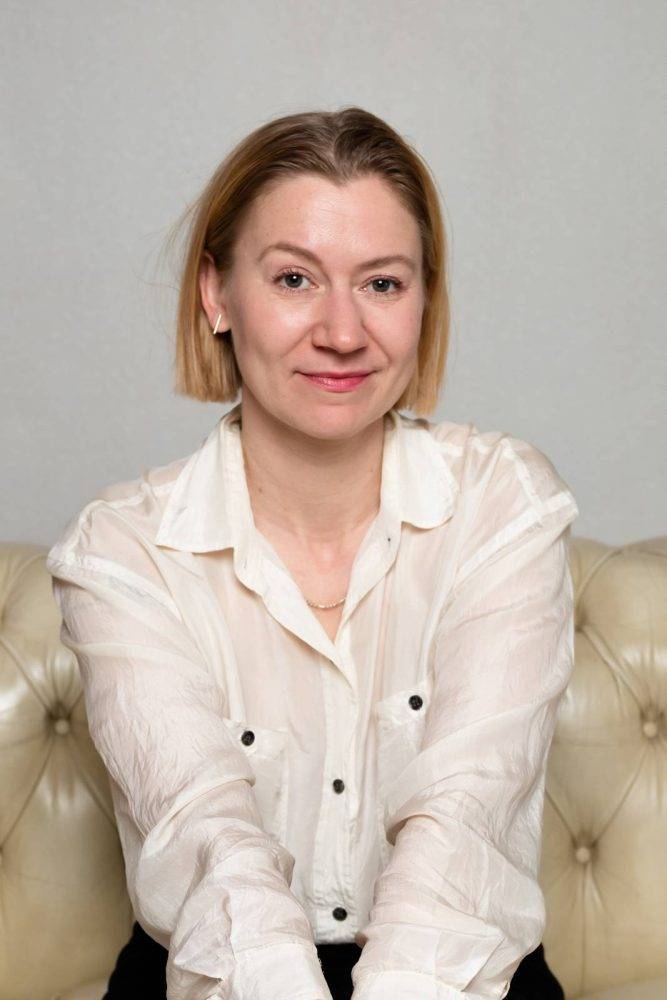
“And I think it’s a particularly egregious mix and dangerous mix of roles to be both the detective, prosecutor and the journalist, you know, kind of like the executioner and the judge at the same time.”
It is effectively blacklisting where you can’t prove that you’re on a blacklist, for it is not an actual written blacklist, Miller explains.
“Most people, artists especially, can’t afford to go to a lawyer to see if they have rights that are being infringed on when they’re being cancelled,” she says.
“You have no chance at all of proving that your political opinions have anything to do with your career being destroyed.”
So far, more than 200 people have been cancelled, censored, fired or criminalised because of this, according to Archive of Silence, a crowdsourced archive documenting silenced voices in Germany.
In a recent speech at Berlin’s Neue Nationalgalerie, American photographer and activist Nan Goldin pointed out that a quarter of those “silenced” are Jews.
Author Naomi Klein, suggested: “At this rate, Germany is going to run out of Jewish intellectuals to ban.”
This was after the awarding of the Hannah Arendt Award to intellectual Masha Gessen was initially cancelled, or “postponed”, to use the favourite euphemism in Germany.
The respected South African-born Jewish artist, public intellectual and academic Candice Breitz, who is based in Berlin, had an exhibition cancelled in the German city of Saarbrücken in April.
“Welcome to the Bad Jew Club, dear Masha Gessen,” Breitz posted on Instagram, “as defined by a nation that has deep experience in sorting and pillorying Jews.
“As painful, stressful and anger-inducing as it may be to contend with German self-righteousness around Jewishness, German censure is fast translating into a badge of pride for progressive Jews.”
Berlin-based artist, educator and activist Adam Broomberg is one of them. Like Breitz, the 54-year-old was born in Johannesburg and grew up in South Africa at the height of apartheid. With an older left-wing brother, he became politically involved as a teenager.
Broomberg is a prominent pro-Palestinian activist. On 20 May last year he attended a joint rally of Palestinians and Jews in Berlin. Organised by Jüdische Stimme (Jewish Voice), it was convened to commemorate the Nakba (the Palestinian catastrophe) 75 years ago.
“It was a very wholesome event, there were kids, there were elderly people, on a lovely spring afternoon,” Broomberg tells me.
Suddenly the riot police arrived and Broomberg found himself confronted by a line of them.
“I tried to engage them in conversation and said to the one policeman, ‘I have a right to be here, you know, I’m Jewish. I also go to the commemoration of Kristallnacht every November. Unlike my grandmother, who didn’t have the right to be here.’
“I said to the policeman, ‘Can I ask, where was your grandmother during the war?’
“He ignored me and when the conversation was over I turned around and walked away.”
At this point three of these “giant riot police pounced upon me from behind, really violently arrested and handcuffed me”.
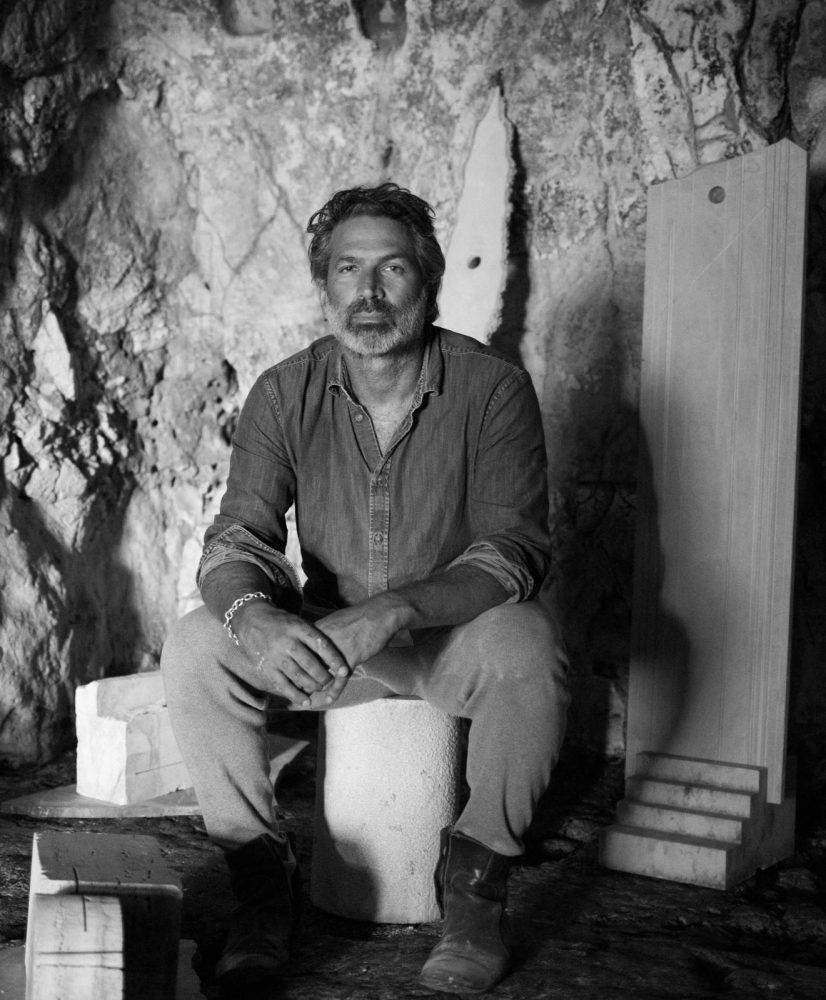
Broomberg was charged with resisting arrest and grievous bodily harm, even though an ambulance was called for him.
He is due to appear in court on 13 January.
Broomberg is also no stranger to being cancelled.
“It’s important to note that this predates 7 October, the strategy of targeting specific voices that show solidarity for the Palestinian struggle or criticise the state of Israel in any way,” he says.
“And almost using a tweezer, removing them from any position of cultural influence.”
Recently, one of his works that deals with death and grief in memory of his late mother, which was meant to be shown at a museum in Kassel, was pulled.
Broomberg was a short-tenure professor in the media arts department at the Karlsruhe University of Arts and Design (HfG), from 16 October last year to 16 February.
“At my first meeting with the rectorate, the governing body, I was sat down and told in no uncertain terms they knew exactly who I was, what my politics were and what my skills were, and that they were fully supportive of me and my work,” he says.
But then, early this year, a common denominator entered the scene — a journalist called Boris Pofalla, who does most of his writing for the pro-Israel, right-wing newspaper Die Welt. Pofalla, who appears fixated with Israel, in reply to questions I sent him said he had visited the country numerous times and had lived there.
Broomberg says Pofalla allegedly approached the university and the ministry with some of his “social media posts … that was ‘evidence’ of my ‘anti-Semitism’”.
Pofalla also wrote a piece for Die Welt titled The Obsession of Adam Broomberg, which described the academic as being obsessed with criticising Israel and accused him of anti-Semitism.
“Using the word ‘obsession’ is interesting because it kind of pathologises me,” says Broomberg, “someone who has, since the age of 15, been active in various struggles, including apartheid, and spending months galvanising the international art community to support Ukrainian artists fleeing the country after the Russian invasion.”
Broomberg says his contract came to an early end as a result of this.
“I have it in writing that I was to no longer enter the building, have access to students or any privileges … And that started before the end of the contract.”
I asked the university’s rectorate if Pofalla had contacted them regarding allegations about Broomberg being an anti-Semite and other accusations. Thomas Frohlich answered: “The university was contacted regarding certain Instagram posts by a visiting professor.”
Broomberg says the university hired a law firm to assess him.
Frohlich responded: “We have commissioned a law firm to support us in communicating with the media and to provide a legal assessment of the posts.”
He conceded that Broomberg wasn’t informed of this investigation.
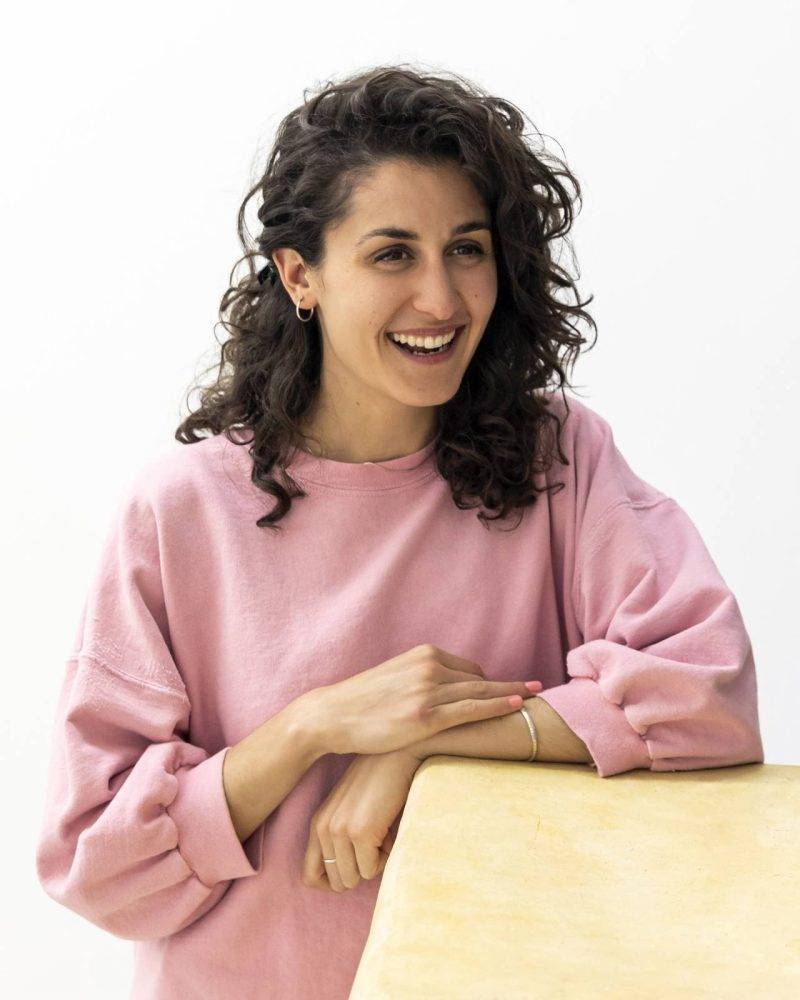
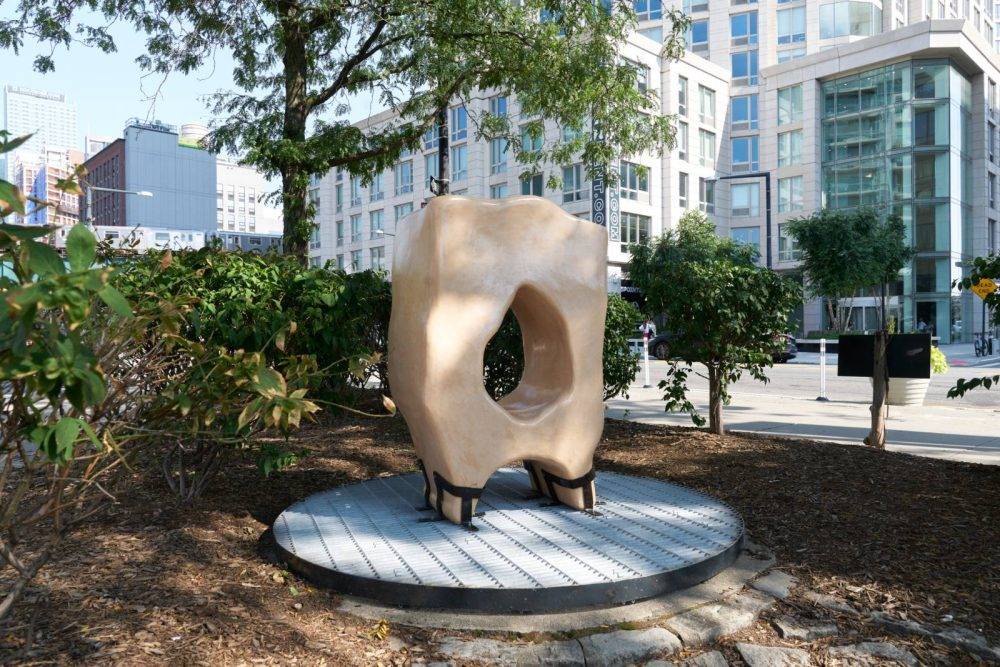
Internationally renowned Palestinian artist Jumana Manna, who has been based in Germany for over a decade, was on the receiving end of Pofalla’s sharp pen for social media posts on 7 October last year, when Hamas attacked Israelis at a concert.
Manna gave context on the art forum Hyperallergic on 1 November: “On hearing early news that Hamas militants breached the barrier surrounding the Gaza Strip, I shared a few stories on my Instagram page.
“One of the stories was a photo reel showing the scene of a rave celebrating ‘peace and love’ a mere three miles from the highly militarised concrete walls imprisoning Gaza. More than two million people, mostly refugees, sequestered inside these walls and under siege since at least 2007, are forced to live in an open-air prison that subjects them to conditions that violate international law.
“Seeing these borders momentarily torn down and flown over, many Palestinians were moved by the stubborn and creative will to break free from captivity. Images of the parachute gliders appeared in our feeds alongside a tractor destroying the apartheid wall.
“We hoped this moment of fugitivity might restore the potential for life, liberation and dignity for all in this wretched land, for this nightmarish fantasy of one-sided normalcy to end. These feelings were necessarily short-lived. We continue to watch in horror, along with the rest of the world.
“At the time I shared my stories on Instagram, the extent of the violence had not become apparent. What was an angry comment on the cynicism underlying the reality of this party: ‘normalcy’ for some and imprisonment for others, was misused to accuse me of taking pleasure in the massacre, which I fully reject. What I regret is not being more precise in the formulation of my politics.
“My Instagram content was taken out of context and mis-framed by the German newspaper Die Welt, notorious for its bad-faith journalism.
“A smear campaign ensued, magnified by vindictive trolling that exaggerated and distorted my comments.
“International institutions that have worked with me in the past or present are being harassed and pressured.”
Manna tells me there was clearly an organised effort to check what people from the cultural scene posted from 7 October onwards.
“Basically, taking screen grabs out of context and exaggerating and manipulating the meaning or adding a cynical interpretation to them.”
Manna believes there is an audience in Germany that is ripe for these kinds of misinterpretation.
“And what flies in Germany doesn’t fly in other countries,” she adds.
Manna says Pofalla wrote the first article after her social media posts, “which was enough because it got the defamation campaign started and now there’s a network of trolls, right-wing groups and journalists that continue to parasitically feed off it”.
It is being used to put pressure on the institutions where pro-Palestine artists worked to demand they don’t employ “anti-Semites”.
“And the institutions have consistently caved into the pressure,” Manna says.
“As a result of that article, there was a domino effect of cancellations of my commitments — shows, film screenings and teaching — in Germany.”
Fortunately, she is a globally established artist, and her career and economy do not depend on Germany.
But people who do depend on jobs in Germany for their income have had their livelihood taken away.
“What’s taken away from me is any possibility to participate in the cultural and public life of Germany,” she says, “a country I’ve lived in, am a permanent resident of, and paid taxes in for 12 years now.”
Like Manna, the Die Welt man also roasted Lebanese-born Berlin curator Edwin Nasr on his pages.
Pofalla also did not give Nasr an opportunity to respond, which is something taken very seriously by the German press.
Pofalla did not reply to my specific question about whether he gave them a “fair opportunity to respond”.
Nasr posted disappearing stories on Instagram on 7 October, including one captioned “poetic justice”.
“A day after my stories got posted, we came to know more details about what had happened at the Nova festival and I probably would have been much more careful in explaining my actual position so as to block out these types of false and malicious recuperations,” Nasr tells me.
Pofalla not only pounced on it for Die Welt but also filed a criminal complaint against Nasr.
Last month, a German court convicted Nasr and ordered them to pay a fine of €1 000 (R20 000). The court proceedings lasted only 30 minutes.
Nasr, who grew up in Lebanon when the south of the country was still occupied by Israel, tells me it was a bizarre experience.
“It felt like I had to overly perform atonement in a sense, a year into Israel’s ongoing genocide against Palestinians in Gaza as well as its savage attacks against civilians in my own country,” they said.
“Who was I even being asked to apologise to? It was all quite a surreal thing to do within a German court, of all places, and in a country responsible for orchestrating the systematic murder of more than six million European Jews.
“It’s funny how, in these moments, your entire subjecthood and the history of your people and their struggle gets completely washed away, if not erased, in the name of German perpetrator narcissism.”
I ask Nasr about the German response to pro-Palestine artists since 7 October.
“To relentlessly go after people for their positions on Palestine has become a celebrated pastime activity within the cultural sector here … and it creates these cyclical sets of responses and counter-responses, dramas that I feel this provincial microcosm somehow lives for.”
Pofalla was in the court when the judge fined Nasr. In response to my emailed question about how he felt, the journalist said: “It is sad that people in the cultural sphere are driven to these levels of hate, but as adults, they have to live with the consequences of their actions.
“Edwin Nasr has had a fair trial. There are no winners in this.”
However, shortly after Nasr’s sentencing, a friend posted an Instagram pic (I saw a screengrab) of the journalist holding a trophy like a cup-winning football captain with the caption: “Boris Pofalla after suing anti-Semites.”



















.png)

Discussion about this post